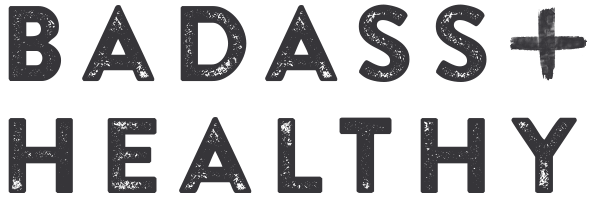We are not all created equal when it come to our genes. These sequences of DNA that we inherit from our parents affect not only the way we look and aspects of our personalities, but what we should or should not eat for our individual health. Eating the wrong thing goes beyond GI discomfort and beauty (yep, genes dictate how certain foods affect skin aging!) to the formation of disease. Yikes!
In this revelatory Q&A with renowned nutrition and beauty expert Mark Tager, MD, author of “Feed Your Skin Right: Your Personalized Nutrition Plan for Radiant Beauty" (his 11th book), we discuss what it means to eat for your genes, how to find a reputable nutritional genomic test and what to do with that information for your health.
What do genes and nutrition have to do with one another?
There are two ways they are linked, says Dr. Tager, whose resume includes creator of one of the first nutritional training programs for medical students at Duke University Medical Center:
Certain genes dictate how we metabolize certain foods and nutrients. Based on genetics, some people love the taste of cilantro. For others, it tastes like dishwashing soap. People have genes that affect how they handle the lactose in milk or how they break down alcohol or caffeine.
The foods you eat turn on or off genes that can promote health or create illness.
Wowza!
…or else. Ha! This is a super interesting book about what to do for radiant skin.
Let’s dig in more on this. What are some examples of the relationship between genes and nutrients?
Dr. Mark Tager: We have inherited genetic variants known as SNPs (single nucleotide polymorphisms). This is just a simple substitution of a letter in our genetic coding. Each one of us has 3 to 4 million of these SNPs. Some of them impact how we utilize nutrients.
There are genes that relate to key nutrients, such as vitamins and minerals like vitamin C, vitamin D, vitamin E or zinc.
There are also genes that relate to the extent to which a person has difficulty handling sugar intake, and others that predispose to fat accumulation.
What is the connection between genes and skin?
MT: In terms of skin health and beauty, there are genes that affect the extent to which we pigment, how rapidly we break down collagen or how susceptible we are to creating AGEs, which stands for advanced glycation endproducts. These are formed by excess sugar in the body attaching to proteins. When it attaches to the collagen in the skin, it makes it more brittle, and this contributes to the formation of fine lines and wrinkles.
How can you find out what genes you have?
MT: Genetic tests are generally not available in your GPs office. However, they are becoming a more standard part of a visit to an integrative or functional physician, or a certified nutrition specialist. Costs vary from around $120-$500. The lower-priced tests are often packaged with the company recommending their supplements and often promoting a monthly membership. The higher cost tests often come with more detail and can include online nutritional counseling.
This lower-priced DNA test from 23andMe tests your saliva. (Not as comprehensive or clinician-led, but if you’re looking for an affordable option that provides some insights, this could get you started.)
Is there a reputable nutritional genomic testing company you would recommend?
MT: Although it is a more costly test, I am a big fan of Nutrigenomix.com, as their test comes with the opportunity to have an interpretation by a trained healthcare professional. I think the GenoPalate test is also a reasonable assessment for the consumer.
How does the genetic test differ from an annual blood panel and being told you have a vitamin deficiency, for instance?
MT: Nutritional genomic testing is predictive; it is NOT diagnostic. The data you get should be used and interpreted by a skilled clinician who will also do a history and physical, check your serum and urine labs including hormones, explore testing for food sensitivities and consider gut microbiome testing if indicated. These are the tests that make up the domain of personalized nutrition.
Once you know what genes you have, then what should you do?
MT: Ultimately, the information you get from all laboratory testing is designed to inform your diet—what foods to lean into and what foods to minimize or avoid. The data can also help you with the right dosing for supplements.
What are a few examples of changes someone might make to eat for their genes?
MT: A few really important ones jump to mind. Your genetic test can help detect celiac disease and gluten sensitivity. Identifying celiac disease can be life-changing for people who have mistakenly been diagnosed with Irritable Bowel Disease (IBD) or who have vague skin or joint symptoms. Caffeine is a great example. We hear that coffee is either good, bad or neutral. True. But it depends on your genes. If you have the genes for rapid metabolism, you can consume much more caffeine than someone who metabolizes caffeine slowly. For these slow metabolizers, more than 2 cups a day can contribute to cardiovascular disease.
I don’t know about you, but I’m sourcing a nutritional genomic test, stat.
Another good read: The 5 Most Important Things for Gut Health, According to a Biologist.



